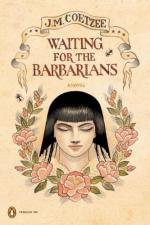|
This section contains 5,521 words (approx. 19 pages at 300 words per page) |

|
by J. M. Coetzee
Born in Cape Town, South Africa, in 1940, J. M. Coetzee is probably the best known and most influential South African writer after Nadine Gordimer. Unlike Gordimer, however, Coetzee often avoids strict social realism, instead creating universal, often allegorical fictions that remind us how oppression and injustice are not limited to South Africa, [and how], in some sense, they are eternal (Gallagher, p. 10). For this reason Coetzee has been a somewhat controversial figure among African writers, many of whom equate political engagement with a particular kind of realism. Nonetheless, Coetzee has been an outspoken critic of both apartheid and political victimization in all its forms. In 1987 Coetzee won the Jerusalem Prize for being a fighter for human freedom and dignity, and for writing in ways that contribute to the freedom of the individual in society (Mitgang in Gallagher, p...
|
This section contains 5,521 words (approx. 19 pages at 300 words per page) |

|


